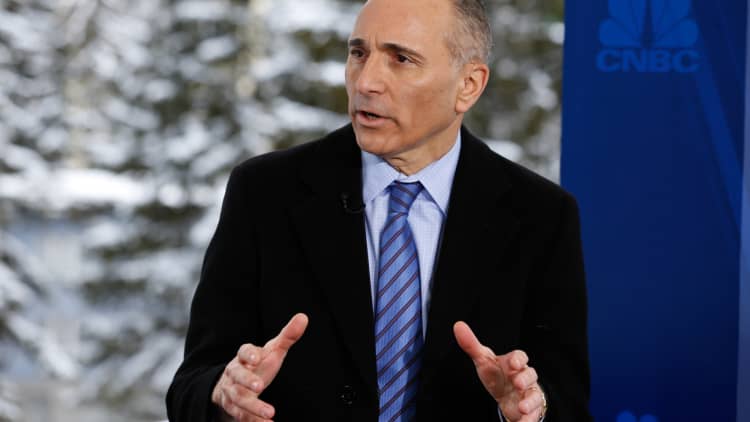The kind of people who were more likely to vote for Mitt Romney over President Barack Obama in the 2012 election also turn out to be the same kind of people who would be most likely to lose their Obamacare health insurance if a looming Supreme Court case goes against the president, according to a new analysis.
Obamacare enrollees who are white, live in the South and have jobs with modest incomes would be disproportionately affected by an adverse ruling for Obama at the high court, which could come this June, the study by Urban Institute researchers found.
The researchers earlier this month found that 6.3 million people would lose health coverage because they would no longer be eligible for subsidies if the Supreme Court rules that such federal financial aid issued to customers on the HealthCare.gov Obamacare insurance exchange is illegal, as plaintiffs claim. Without those subsidies to help pay for premiums in the 37 states served by the federal exchange, the plans would become unaffordable for that number of people, the Urban Institute said.
Read MoreHealth-care ignorance costs insurers
In a new report issued Thursday that looked for the first time at the demographics of that group, the researchers said that 61 percent of the 6.3 million people who would lose health coverage are white, and 62 percent of them live in the South.
And a total of 81 percent of the people who would lose coverage work either full or part time, and 82 percent have modest incomes, but are not poor, the report said.
Conversely, the Obamacare enrollees who would be more likely to be able to afford the insurance without the subsidy assistance or get coverage from another source after a Supreme Court ruling against the subsidies are more likely to have higher incomes, to be white, highly educated "and to live in regions outside of the South," the study said.
"We now have a clearer picture of who stands to lose financial assistance and join the ranks of the uninsured if the Supreme Court rules in favor of King," said Andy Hyman, senior program officer of the Robert Wood Johnson Foundation, which funded the study.
"The court will decide if people living in some states will continue to receive financial help buying coverage while their neighbors in the next state will not and remain uninsured," Hyman said.
Read MoreObamacare ruling could take insurance from millions
Every state in the South, with the exception of Florida and Virginia, voted for the Republican challenger Romney over the incumbent Obama in 2012. Support for Romney was particularly strong among white residents in that region.
And, "most whites in general, but particularly whites from the South, have unfavorable views toward [Obamacare], and that goes for the middle-income group as well," said Mollyann Brodie, a senior vice president at the Kaiser Family Foundation, citing recent public polling by that health-care policy research organization.
Every state in the South with the exception of Kentucky is served by the federal Obamacare exchange HealthCare.gov, since their governments rejected the option of running their own ACA marketplace. Thirteen states and the District of Columbia are operating their own health insurance marketplaces.
The Supreme Court case hinges on a purported legal distinction between a federally run exchange and one operated by a state. The high court is set to hear arguments in the case on March 4.
The ACA explicitly says that subsidies or tax credits to help pay for premiums as well as for out-of-pocket health costs can be issued to customers of a state-established exchange. Although the ACA talks about the creation of a federal exchange in states that choose not to run their own marketplace, it doesn't say anything explicitly about such subsidies being issued to customers of such an exchange.
Read MoreHealthCare.gov hits 7.1M sign-ups
The Obama administration nonetheless claims the HealthCare.gov subsidies are legal because the ACA contemplates the need for HealthCare.gov, and that the ACA's goal of significantly reducing the number of uninsured implicitly means that tax credits have to be available to customers nationally, regardless of the particular flavor of exchange.
The tax credits are worth billions of dollars, and helped to lower premium costs for a large majority of enrollees of HealthCare.gov. Such tax credits issued to customers of state-run exchanges are not at risk from the Supreme Court challenge.
The administration filed a brief Wednesday night with the high court outlining its position in defense of the subsidies.

The plaintiffs in the challenge claim that the administration did an end run around the ACA by authorizing the subsidies for HealthCare.gov enrollees.
One of the intellectual architects of that challenge, Michael Cannon of the Cato Institute, argues the administration's action has resulted in billions of dollars in illegal taxes being collected from Americans to fund that financial assistance for Obamacare enrollees.
Asked about the findings of the Urban Institute report, Cannon said, "This study, like all similar studies, shows to whom the president is lying and whose coverage he has jeopardized by stepping outside the law."
Read MoreLack of 'strategy' at Obamacare site
But Timothy Jost, a Washington and Lee University School of Law professor and Obamacare expert, noted that six federal appeals court judges have found "that the text of the ACA definitively establishes the ability, and responsibility, of the federally facilitated marketplaces to issue premium tax credits."
"The RWJ/Urban study demonstrates again what we already knew, that this litigation threatens the access of millions of low- and moderate-income Americans to health coverage and health care," Jost said. "It merely puts a face on who those Americans are. Congress would not have possibly intended this result and the text of the ACA, as is explained by the government's brief, proves that Congress did not intend this."


